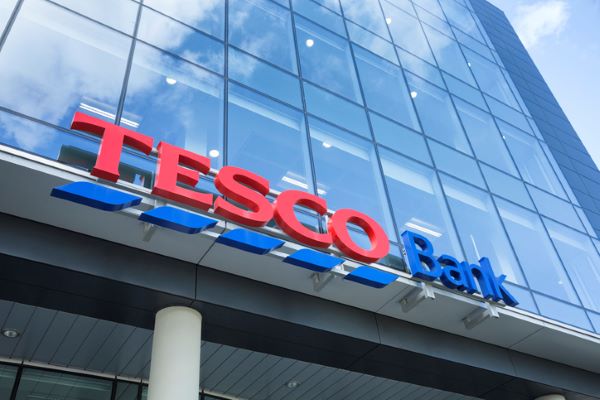ii view: Tesco to return nearly £1bn to shareholders after bank sale
Increasingly focused on food and bringing in the expertise of a banking industry major. We assess prospects following this latest news.
9th February 2024 11:38
by Keith Bowman from interactive investor

Sale of banking operations and strategic partnership
Chief executive Ken Murphy said:
“As we look to the future, our aim is to be the best provider of financial services in the UK, with this strategic transaction and partnership with Barclays unlocking greater value for customers and for our business.
“The transaction will also significantly reduce our financial liabilities, in turn strengthening our balance sheet and allowing us to focus on continuing to grow our core retail business.”
- Invest with ii: Open a Stocks & Shares ISA | ISA Investment Ideas | Transfer a Stocks & Shares ISA
ii round-up:
Retail titan Tesco (LSE:TSCO) today announced the proposed return of proceeds totalling close to £950 million following a deal stuck with Barclays (LSE:BARC) in relation to its banking operations.
Tesco banking ops in relation to credit cards, loans and savings are being sold to Barclays, with a new 10-year strategic partnership being established under which Barclays will provide Tesco-branded banking products and services to its customers.
Shares in the FTSE 100 supermarket chain rose 1% in UK trading having come into this latest news up by close to 15% over the last year. That’s ahead of a 2% retreat for rival Sainsbury (J) (LSE:SBRY) which also recently announced changes to its banking operations. The FTSE 100 index itself is down close to 4% in the past year.
The deal strengthens Tesco’s balance sheet, with £7.7 billion of capital-intensive assets and £6.7 billion of financial liabilities being removed, while Tesco will receive income from Barclays given the bank’s use of its brand and participation in its Clubcard programme.
Tesco will keep operations in relation to insurance, ATMs, travel money and gift cards, with the annual adjusted operating profit from the partnership and retained activities anticipated to be between £80 million and £100 million - more than half of the current year expected profits from Tesco Bank.
The combined share buyback and banking deal is expected to be mildly accretive to earnings per share with the deal, subject to regulatory approval, expected to complete in the second half of 2024.
Broker UBS reiterated its ‘buy’ stance on Tesco shares post the announcement, flagging an estimated fair value price of 315p per share. Full-year results are scheduled for 10 April.
ii view:
Starting out as a market stall in 1919, Tesco today employs over 330,000 people across its stores and distribution centres in both the UK, Ireland, and Central Europe. In 2017, it purchased UK food wholesaling business Booker, giving it exposure to both restaurants and other food convenience stores and businesses. Competitors arguably include Marks & Spencer Group (LSE:MKS) which is partnered with Ocado Group (LSE:OCDO), and variety retailer B&M European Value Retail SA (LSE:BME). The UK & Ireland generate most of its sales, with Central Europe accounting for almost 7% and banking at under 2%.
For investors, the tough economic backdrop, with heightened borrowing costs now squeezing its consumers’ disposal income, cannot be overlooked. Competitors including discounters Aldi and Lidl are not standing still. Costs pressures generally for businesses including wage demands persist, while foreign exchange moves can hinder as we saw following a currency devaluation at its Central Europe business.
- Sign up to our free newsletter for investment ideas, latest news and award-winning analysis
- 10 shares to give you a £10,000 annual income in 2024
- Investor poll: here’s where you’re investing your ISA allowance
On the upside, this banking deal looks to bring in the industry expertise of Barclays while allowing Tesco to concentrate more on its core food offering and reducing its financial exposure. Tesco’s UK market share remains solid at 27.9%, geographical and business type diversity exists given its wholesale Booker division, while cost savings continue to be reinvested back into competitive shelf prices.
On balance, and despite ongoing risks, a core defensive business of selling food combined with share buybacks and a forecast dividend yield of around 4%, should be sufficient to keep long-term investors happy.
Positives
- Robust UK market share
- Diversity of both business type and geographical region
Negatives
- Intense industry competition
- Uncertain economic outlook
The average rating of stock market analysts:
Buy
These articles are provided for information purposes only. Occasionally, an opinion about whether to buy or sell a specific investment may be provided by third parties. The content is not intended to be a personal recommendation to buy or sell any financial instrument or product, or to adopt any investment strategy as it is not provided based on an assessment of your investing knowledge and experience, your financial situation or your investment objectives. The value of your investments, and the income derived from them, may go down as well as up. You may not get back all the money that you invest. The investments referred to in this article may not be suitable for all investors, and if in doubt, an investor should seek advice from a qualified investment adviser.
Full performance can be found on the company or index summary page on the interactive investor website. Simply click on the company's or index name highlighted in the article.